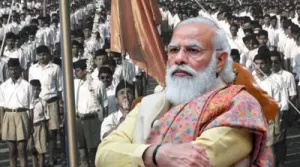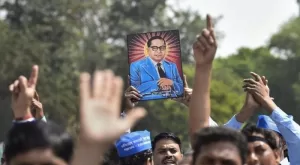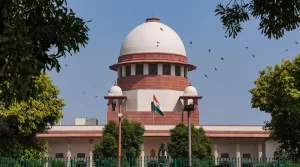More than 80,000 electricity workers affiliated with different unions stopped work for 72 hours across Maharashtra to oppose the bid to privatise three state-owned power companies. The strike was called off after Maharashtra Deputy Chief Minister Devendra Fadnavis publicly promised not to support the possible granting of parallel license to a private company belonging to a conglomerate.
Fadnavis, who also holds the energy portfolio, held a long meeting with trade union representatives on Wednesday. Afterwards, he told the media that the government had no intention to privatise state-run power utilities.
The state-owned companies are Maharashtra State Electricity Distribution Co. Ltd, Maharashtra State Electricity Transmission Co Ltd and Maharashtra State Electricity Generation Co Ltd.
The employees were infuriated after a private company moved its request for parallel licensing to Maharashtra State Electricity Regulatory Authority. The employees allege that the license to the private company in question would wreak havoc on the public electricity system as both urban and rural consumers have been availing the facilities of cross-subsidy and entry would deprive poor consumers of getting cheap and subsidised electricity.
Cross Subsidy refers to a system where urban and industrial consumers pay a higher tariff on power to the electricity company, and in return, the government asks the company to provide electricity to less privileged sections like people living below the poverty line and farmers.
Vivek Mahale, Deputy General Secretary, Maharashtra Electricity Swabhimani Workers Union, told NewsClick that the private company has asked for parallel licensing in areas like Thane and Navi Mumbai. These places have been contributing Rs 1350 crore per month to the state-owned companies, and in return, the companies could provide cheap electricity to farmers in the state. They have been running the state’s economy despite suffering losses for decades now. “They do not want to create a new infrastructure by spending money, but certainly want profits by cherry-picking areas where urban consumers have been diligent in paying bills. We are also fearful that the company in question is in huge debt and it would ultimately transfer this burden to the consumers. All sections of the workers participated in the strike and compelled the government to put its case before the regulatory body,” Mahale said.
Mahale added that stopping the work was the last resort of the workers. “We held a demonstration of 35,000 workers in front of Nagpur Legislative Assembly, then organised a march of 12000 workers which saw widespread support from all sections of society. After the strike, Deputy Chief Minster Devendra Fadnavis met us and said that there was some misunderstanding about the issue. We emphasised that as a minister, it was his duty to save public companies. He said that the company had moved its request to the regulator and he was not directly related to it. We said that at least the government should put its case before it (the regulator).”
Talking about the associated risks of privatisation, Mahale added that as government companies, three electricity companies are bound to implement social security norms like labour laws and reservations for marginalised communities. “Privatisation will tear apart the social fabric of the state.”
The strike saw support from farmers’ organisations, petroleum workers and other sections of society. Pradeep Mayekar, President of the Petroleum and Gas Workers Federation of India, in a statement said this strong Strike action is the culmination of a two-month-long united struggle of Maharashtra electricity employees. “Maharashtra govemment didn’t pay any heed to the objection of the agitating workers and the people. Certainly, there was no option left except going for strike to save Maharashtra Public Electricity from the crawls of Adani! The Maharashtra State Administration is the sole responsible for any disturbance to Public service causing from this Strike action – the onus of people’s suffering is undoubtedly upon them.”
Ajit Navale, Maharashtra State Secretary, All India Kisan Sabha, explained to NewsClick that the hike in electricity prices would add to agrarian distress. “Currently, the cost of production of food grains like seeds, urea, and pesticides are already expensive, but food prices have been kept low because farmers have been bearing the loss. When you increase the price of electricity, the cost of production will go up as well and the burden would become unbearable. This is why governments sometimes come up to forego the burden when farmers express their inability to pay bills,” he said.
Navale said the AIKS extended its support to the strike because certain sectors should not be handed over to private companies, like health, education and electricity, among others. “We saw its importance in the coronavirus period when government hospitals took on the responsibility of dealing with pandemic. Had it been transferred to mediclaim-based insurance companies and private hospitals, it would have wreaked bigger havoc everywhere. Similarly, how would the urban poor get necessary electricity if private power companies are in control!” he added.
Support also came from the Centre of Indian Trade Unions (CITU), which said that the strike was a strong expression of resistance and defiance of the Maharashtra State Electricity Workers against blatant privatisation and the government’s highhandedness.
In a statement, Tapan Sen, General Secretary of CITU, said, “Strikingly, the petition filed by Adani Group – Adani Electricity Navi Mumbai Ltd. and Adani Transmission Ltd. is misinforming, misguiding, incomplete, incorrect and ill-intended in many senses. The group is in severe financial-debt crisis and the petitioner company doesn’t have any experience of Electricity distribution service. These are strong, valid and justified objections, as under section 14 (Grant of License) of Electricity Act 2003 the Granting of License to any petitioner requires the compliance relating to the capital adequacy, credit-worthiness, or code of conduct.”
The Electricity Employees Federation of India (EEFI) lauded the victory of the united struggle of the Electricity Workers and Engineers of Maharashtra for the incredible victory. “Resisting and Defying the government’s onslaught, including the vindictive invocation of draconian MESM Act 2017, the determined strikers have emerged victorious… The arrogant Maharashtra Govt. practically surrendered to the Striking workers,” it said in a statement.
“Strikingly in yesterday’s press meet, the Deputy CM, Maharashtra, has proposed for a separate electricity distribution company for agricultural consumers. EEFI apprehend that it will heavily affect the cross-subsidy mechanism and will pave a path for the Govt. to do away with agricultural electricity subsidy. It is a clandestine back-door project to squeeze the peasantry. EEFI strongly opposes this,” the organisation said.
EEFI also noted that around 2 million electricity workers from across the country also came into the street on January 4, 2023 in solidarity to the striking Maharashtra workers. Invigorated by the workers’ victory, the EEFI called upon Indian citizens, and especially the electricity workers, to uphold the experience of the Maharashtra movement and build a movement against the “draconian” Electricity (Amendment) Bill 2022.
NCCOEEE (National Coordination Committee of Electricity Employees and Engineers) greeted and applauded the power sector workers for resisting the “privatisation move through parallel license in high revenue potential area of Navi Mumbai”. Extending its solidarity again to the workers’ movement, it said, “NCCOEEE and all its constituents impressed upon the Maharashtra Government to intervene into the dispute. As the CM, Maharashtra, did not pay heed, strike became inevitable. From zero hours on 4th January, one and all categories of Maharashtra electricity workers resorted to strike action with 100% participation.”
(Courtesy: Newsclick.)




